ABZWorks Employability Support
Aberdeen
2023 marks the 25th Anniversary of the SURF Awards, showcasing and sharing best practice, and promoting learning from ‘what works’ in regenerating Scotland’s places. Each year the SURF Awards has celebrated some of the most impressive outcomes in tackling physical, social and economic decline in communities throughout the country.
This publication profiles the 15 projects shortlisted in the 2023 SURF Awards. Projects range in scale, activity and geography, from smaller scale community activity in Govan to arts festivals and programmes in Edinburgh and Greenock, and larger scale investments in Orkney. We hope all 15 will inspire those working in regeneration projects throughout Scotland, and provide opportunities for learning.
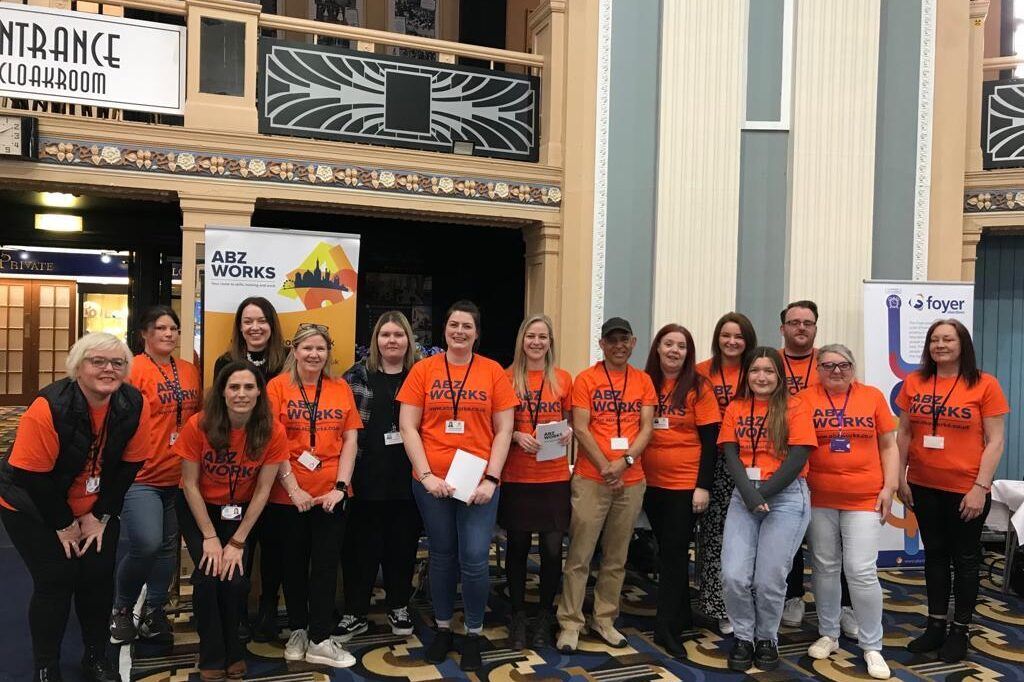
Aberdeen
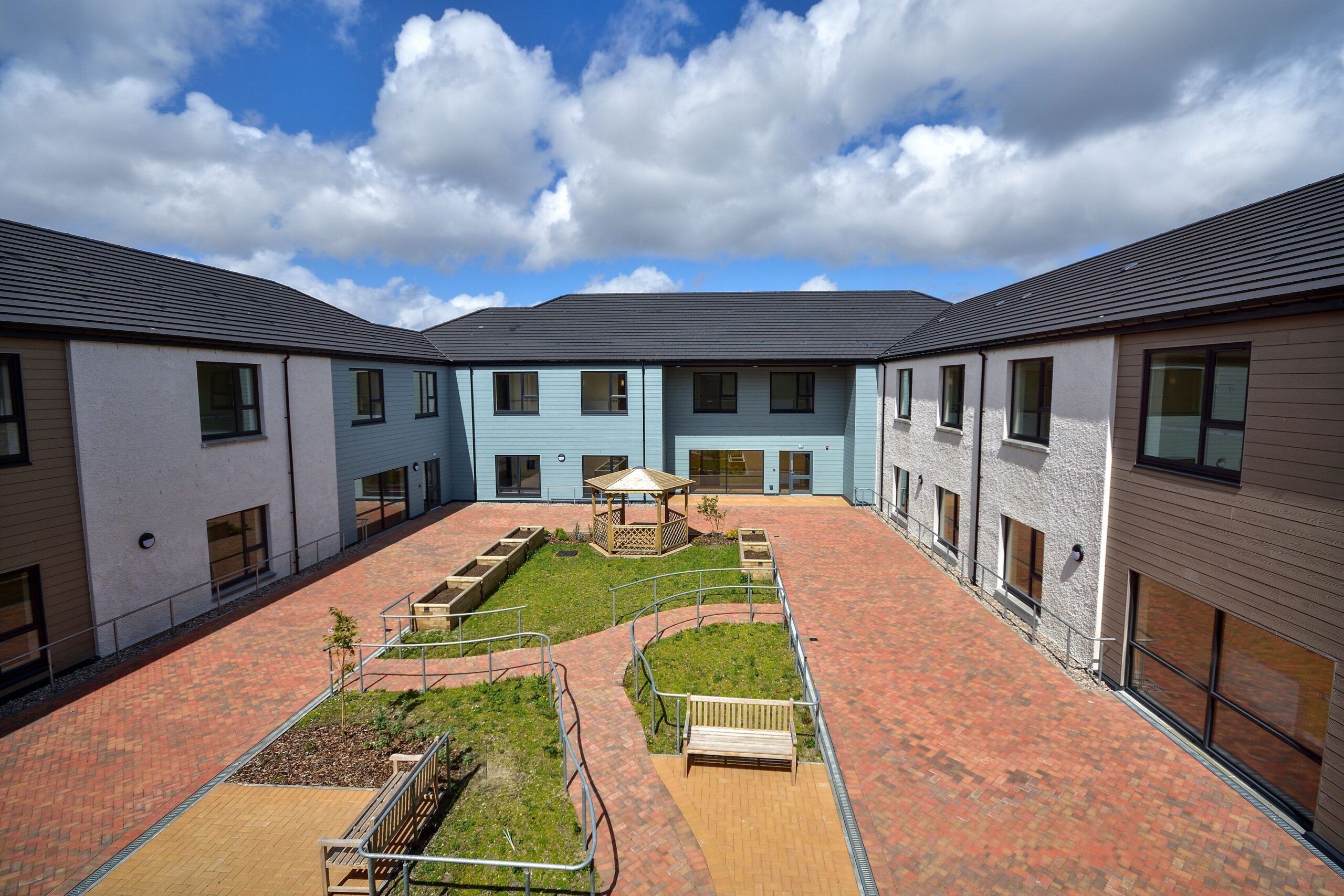
Stornoway, Isle of Lewis
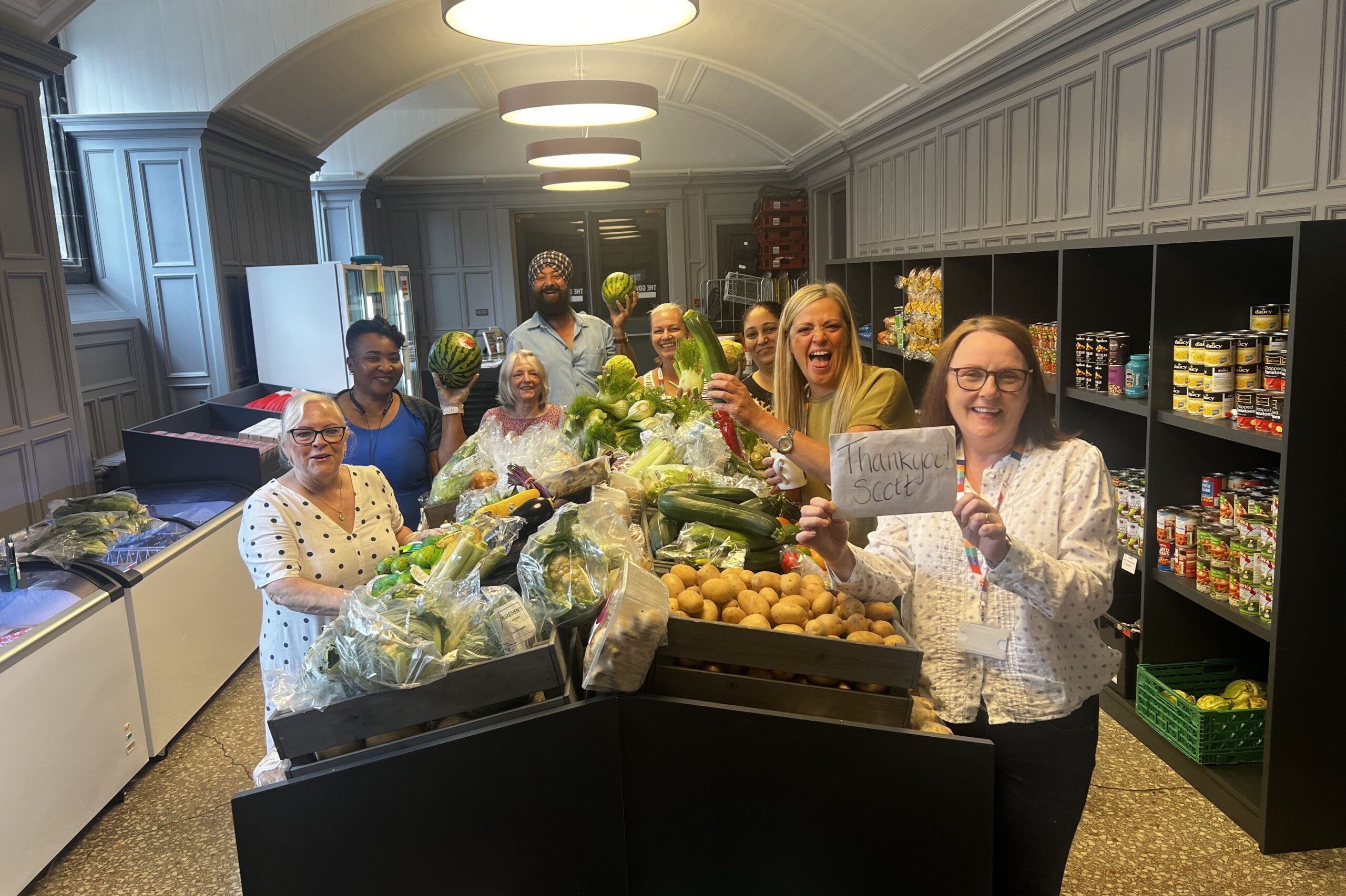
Govan, Glasgow
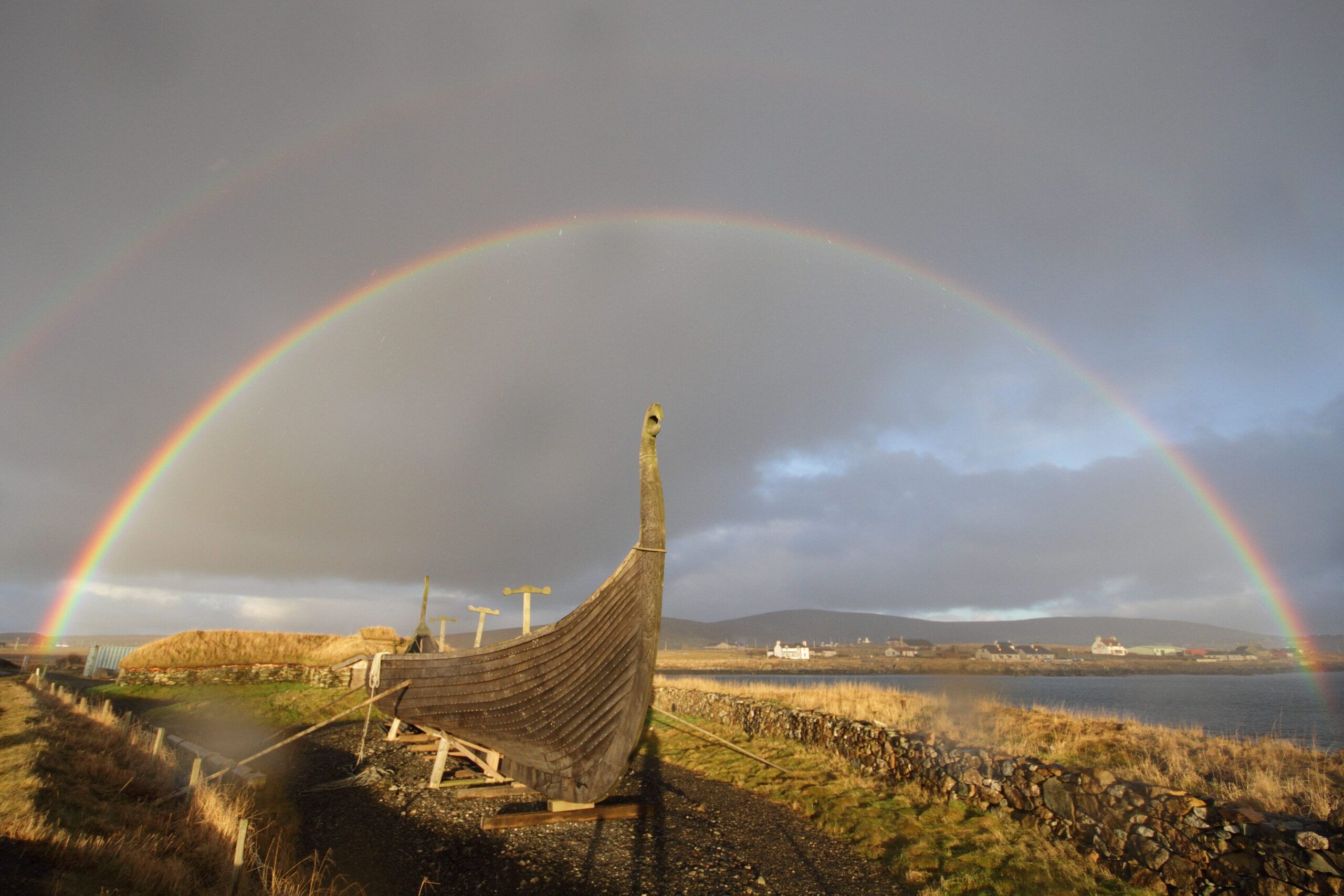
Unst, Shetland
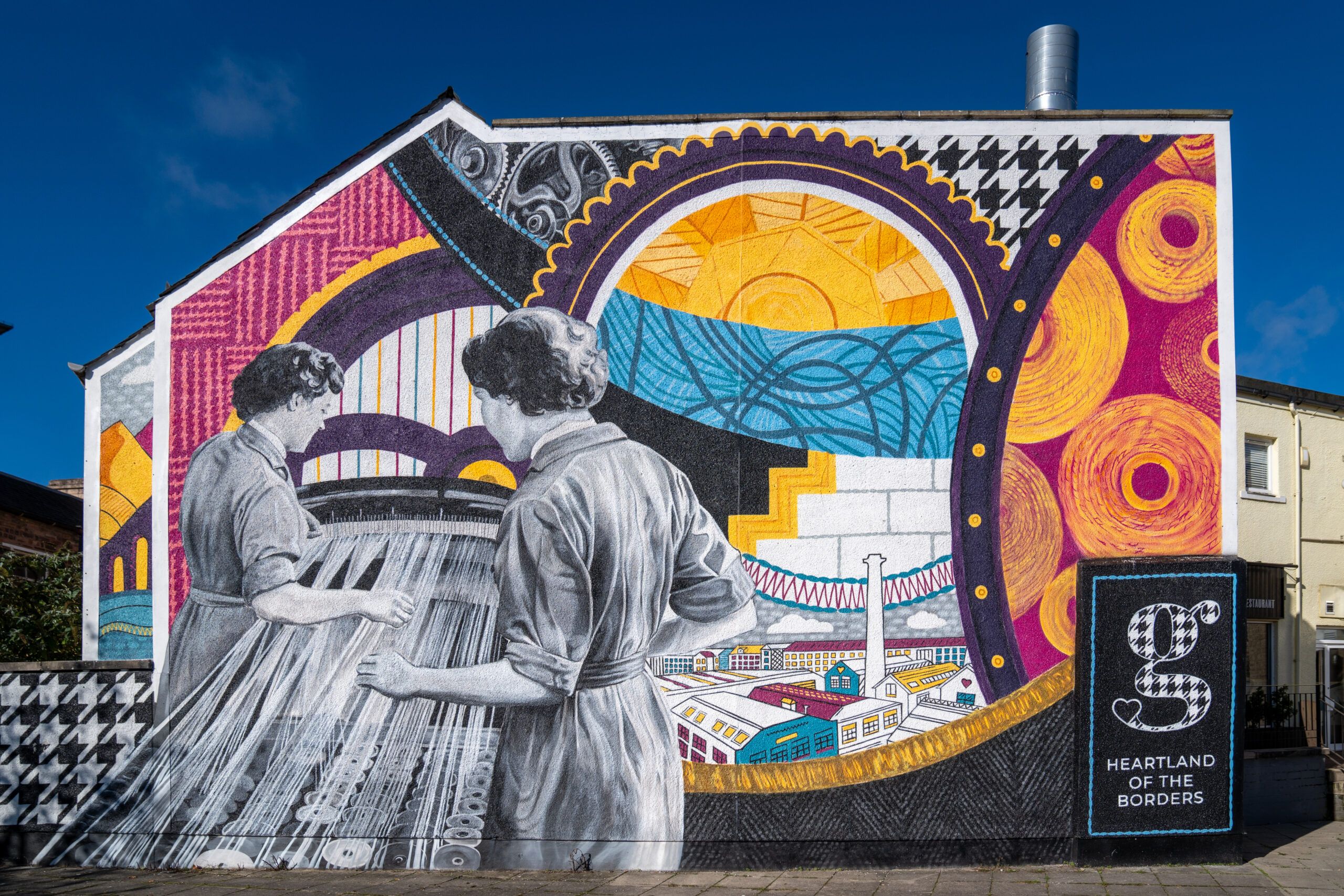
Galashiels, Scottish Borders
Wester Hailes
Dumfries and Galloway
Isle of Lewis
Rutherglen
Dundee
Aberdeen
Unst
Edinburgh
Greenock, Inverclyde
Wester Ross
Glasgow
Isle of Kerrera
Galashiels, Scottish Borders
Oban
Orkney
City of Edinburgh Council Mixed Tenure Improvement Scheme
Wester Hailes
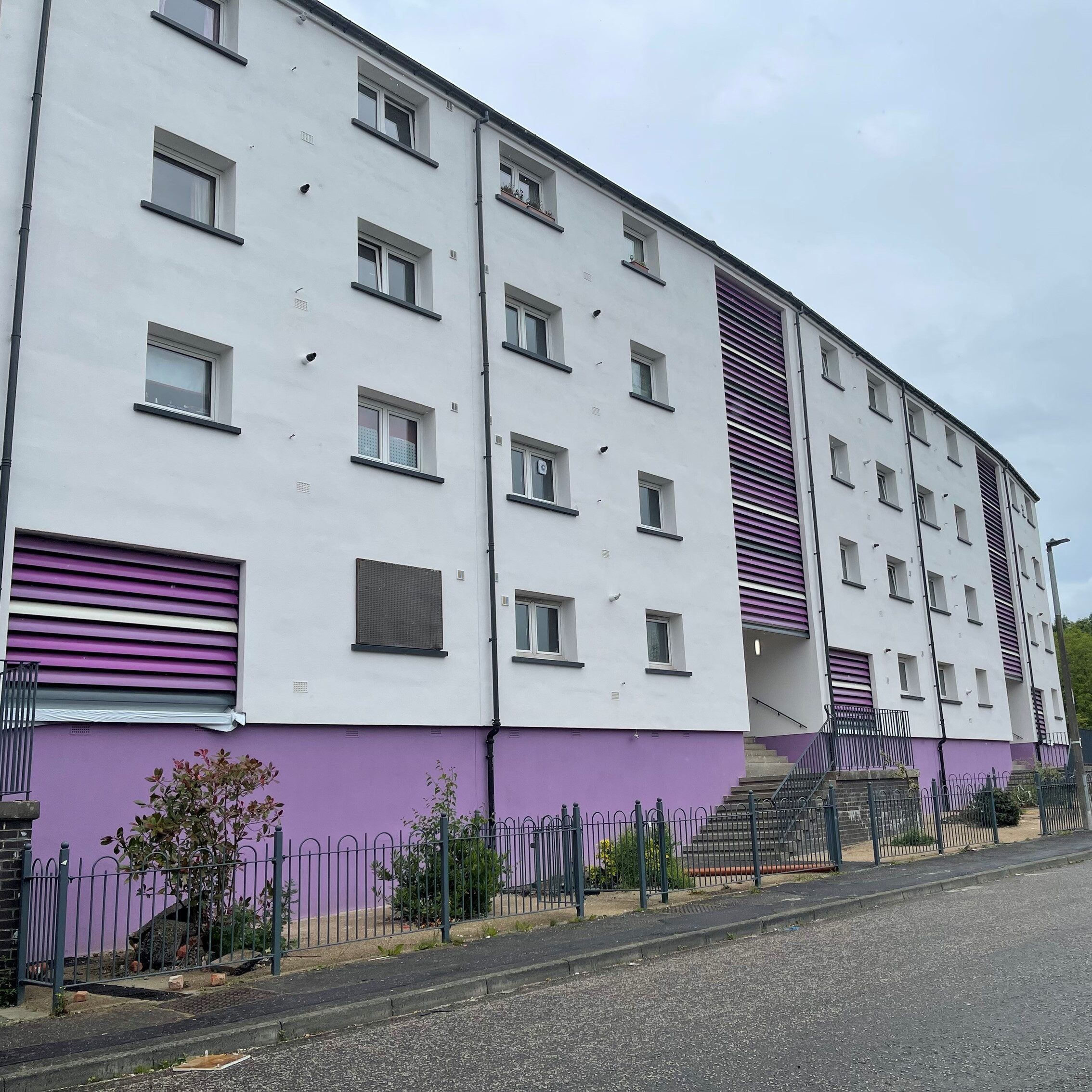
In 2020, the City of Edinburgh Council approved a pilot project to improve building condition of existing blocks in three areas. The pilot brought a new approach to engaging with private owners to obtain their agreement for the Council to take the lead role by using the decision-making process within the Tenements (Scotland) Act 2004. The target was to upgrade 1400 flats in 181 blocks over 3 years in a £30m programme.
The pilot area had previously received little investment and the condition of the blocks was poor. The Council designed best value technical solutions for different block architypes to achieve improved thermal performance to meet statutory obligations for Housing Standards. This approach means owners avoid unintended consequences created by elemental improvements, and thereby removes the risk of dampness inside flats. All owners in the block have a joint responsibility for repairs and maintenance to shared parts of the block.
Improved energy efficiency, using a holistic whole house retrofit approach, will reduce residents fuel demand and therefore fuel poverty. The project hopes to instil a sense of pride for residents in a deprived area where joint maintenance was neglected, and existing building condition is poor.
Glentrool Community-led Housing & Regeneration
Dumfries and Galloway
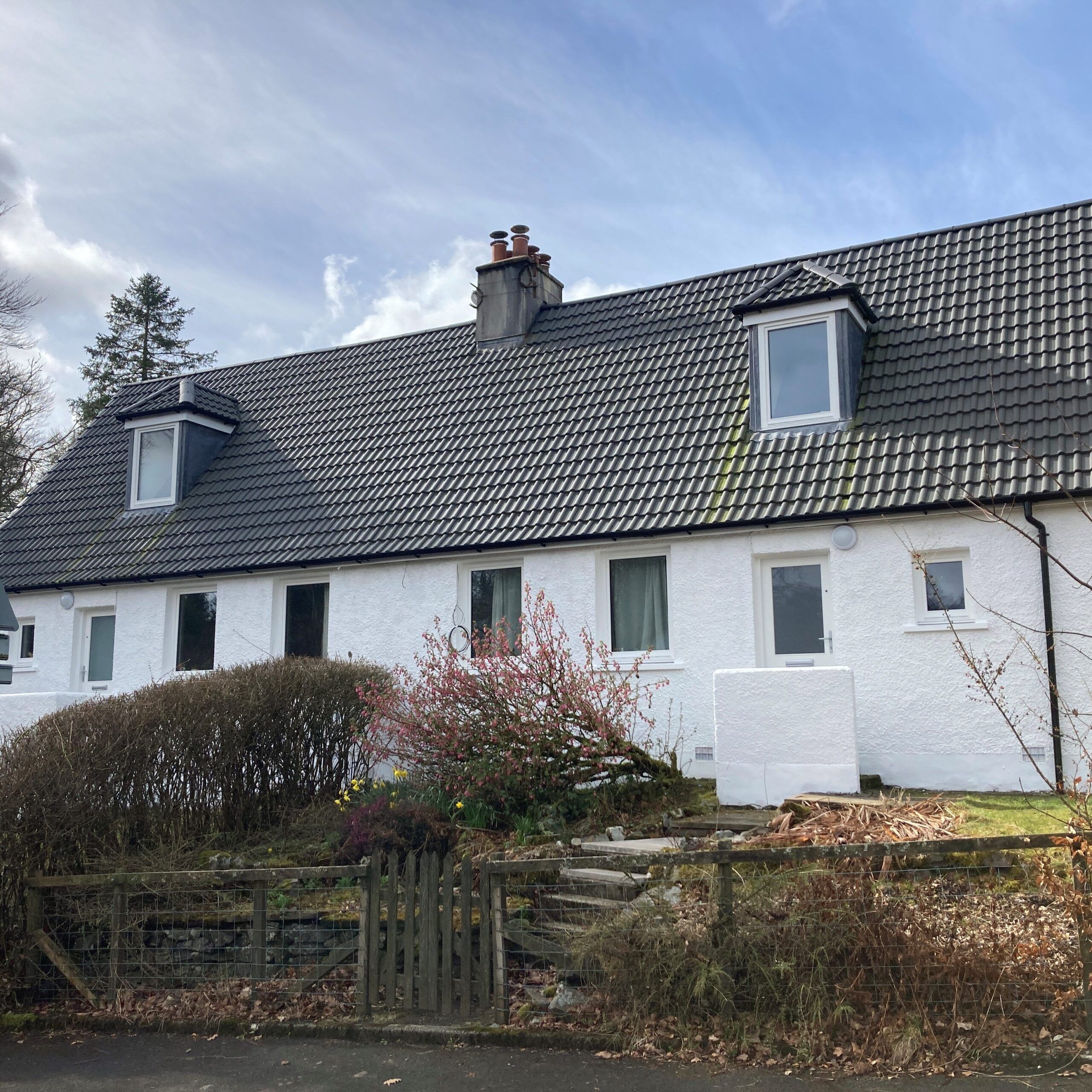
Following the closure of the school and planned market sale of long-term empty homes, the community feared for its future. Drawing together a range of partners, Glentrool and Bargrennan Community Trust (GBCT) identified needs around housing and community space.
South of Scotland Community Housing (SOSCH) undertook a formal Housing Needs and Demand Assessment on behalf of the community. The work demonstrated a demand for family homes and housing for older residents. In particular, from people with connections to the community who were currently resident elsewhere on account of a lack of suitable and available housing. This research also demonstrated a need to consider housing alongside opportunities for employment.
Three homes were secured for community ownership, affordable in perpetuity and allocated at a local level. The homes are retrofitted to low energy standards, thus offering enhanced running costs, more affordable living and a more durable future.
The acquisition and redevelopment of the former primary school, also retrofitted to high standards of energy performance, created a vibrant, flexible and mixed-use community space, providing three local jobs. In addition, a community garden and greenspace was created, with produce available to local residents.
Goathill Housing and Care Home Project
Isle of Lewis
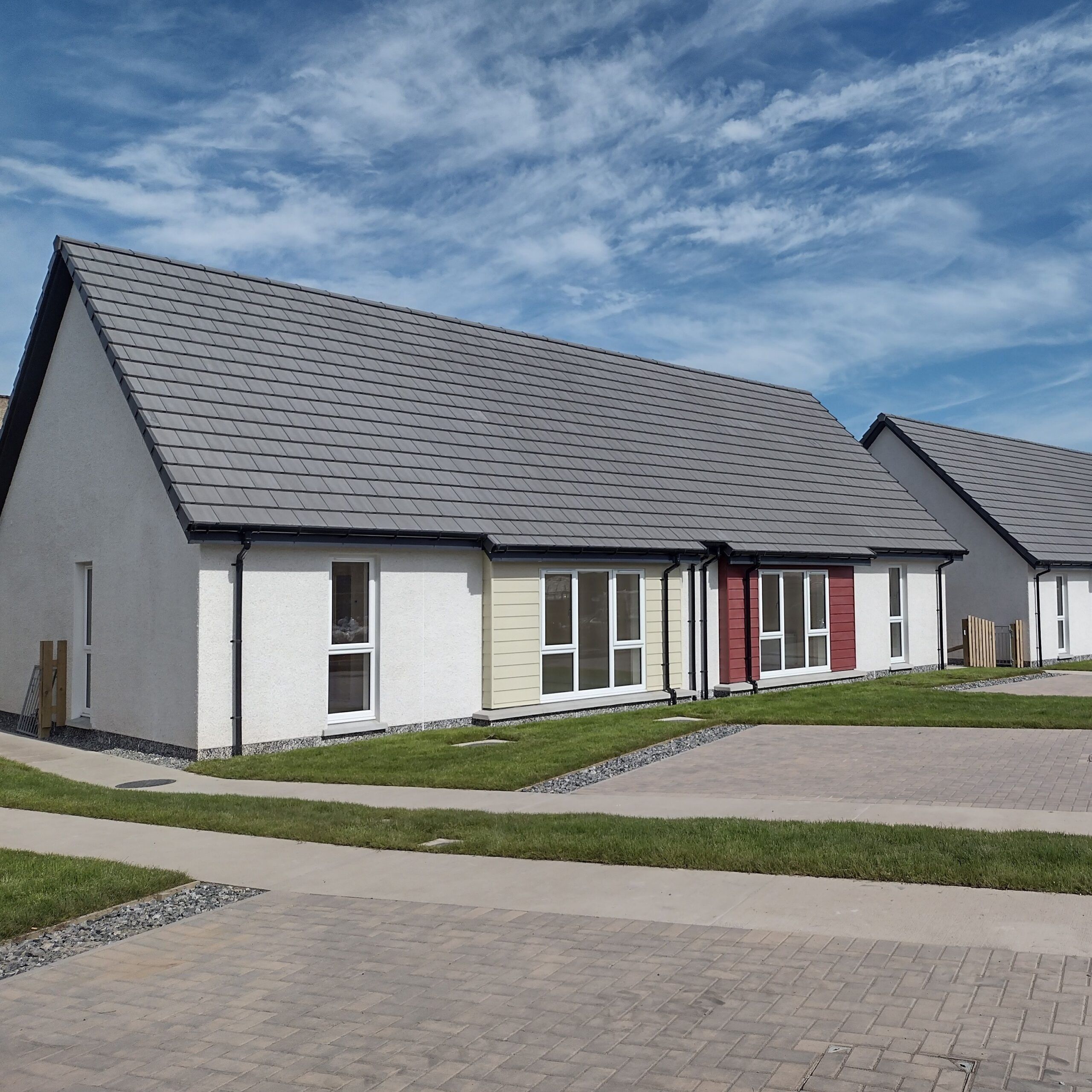
The Goathill project was an ambitious initiative to meet the varying needs of the island’s population, with particular emphasis on the elderly. The development delivered a 52 bed residential care home, 50 housing with extra care flats at Bremner Court, 58 homes for social rent, and 16 Homes for sale through the shared equity scheme at Sinclair Avenue.
The new 52 bed care home allowed for the closing of an older care home and rehoming of residents to a brand new facility with better equipment. The 50 housing with extra care flats were aimed at two different target groups. 15 flats on the ground floor were aimed at reablement flats for residents with short term high needs, and the other 35 flats were aimed at addressing ageing population needs and allowing the residents to live in a communal living space. The 74 affordable homes addressed a high waiting list in Stornoway for social rented homes.
The enabling works for the entire site and the construction of the care home and housing with extra care flats were carried out by McLaughlin & Harvey, whilst the construction of the 74 affordable homes were carried out by local firm O’Mac Construction. The ongoing maintenance of the buildings, homes and grounds is providing much needed income and employment opportunities to local contractors.
The grounds and the facilities have improved the look of the area. As the Outer Hebrides is very windy, research into courtyard geometry ensured the provision of sheltered, attractive, useable garden and recreation spaces. There is also a larger recreation area to the north of the site, which has been designed to aid in giving the residents green liveable space.
Topgolf Recruitment
Rutherglen
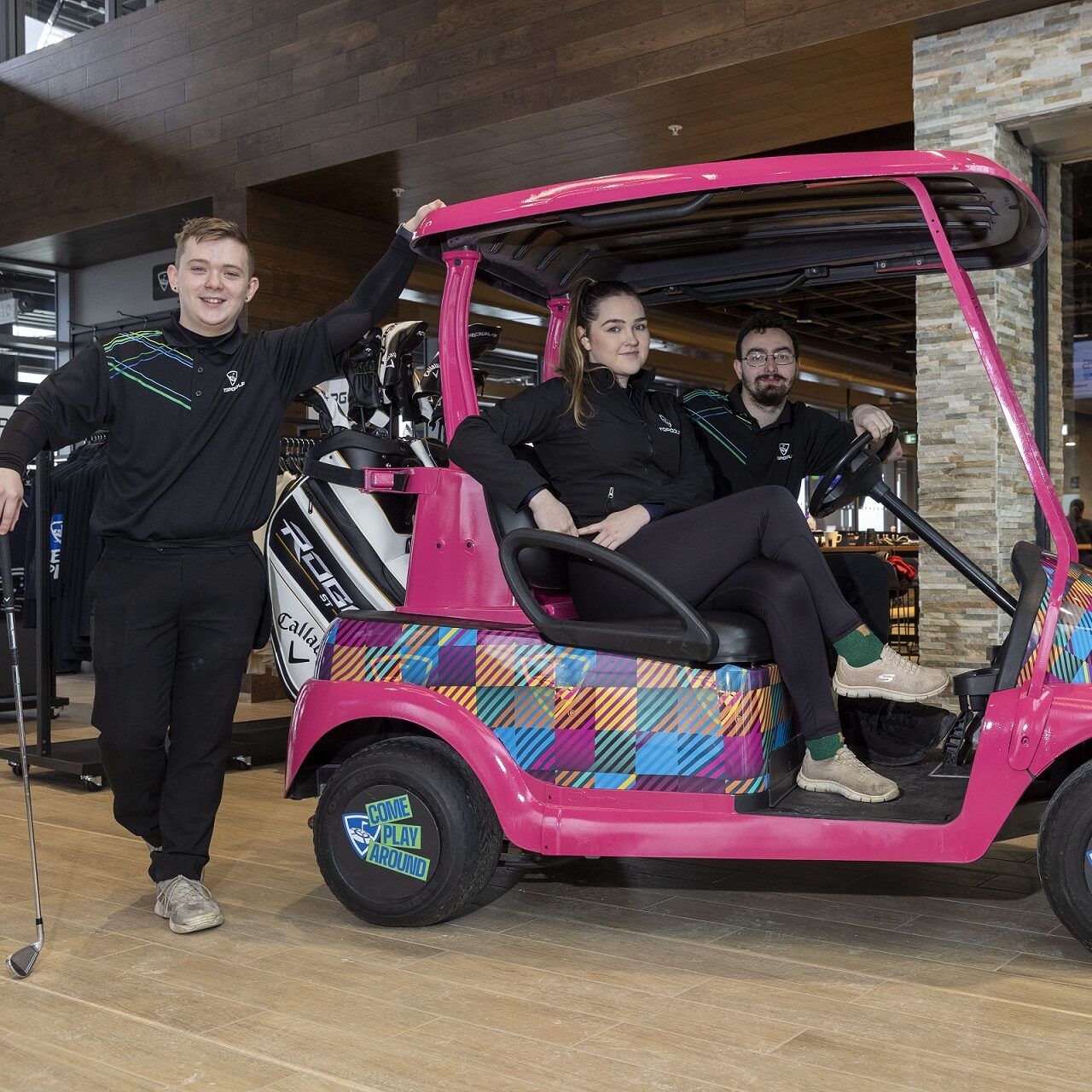
The opening of Topgolf, a global sports and entertainment company, created over 300 new jobs. Vacancies were a mix of full and part-time positions, and included front of house, maintenance, kitchen and bar staff.
A partnership was formed between Clyde Gateway, Skills Development Scotland, Routes to Work South, Job Centre Plus and South Lanarkshire Council to support the business with recruitment and training requirements. A formal offer of support was accepted by Topgolf, with each partner taking a lead role in their area of expertise to maximise opportunities for Clyde Gateway residents.
Originally, the focus for volume recruitment was through a series of workshops led by the employer. After discussion with Clyde Gateway and partners, the employer agreed that in addition they would co-host sessions in community venues for various groups, such as school leavers, parent returners and career changers. This gave Clyde Gateway and partners the best opportunity to prepare local residents for the jobs in advance. The partnership engaged with over 100 people who were registered unemployed and faced barriers to employment.
Topgolf opened in December 2022 with approximately 78% of employees living locally to the premises. The partnership will continue to support with ongoing recruitment, access to apprenticeships and upskilling.
All In Dundee
Dundee
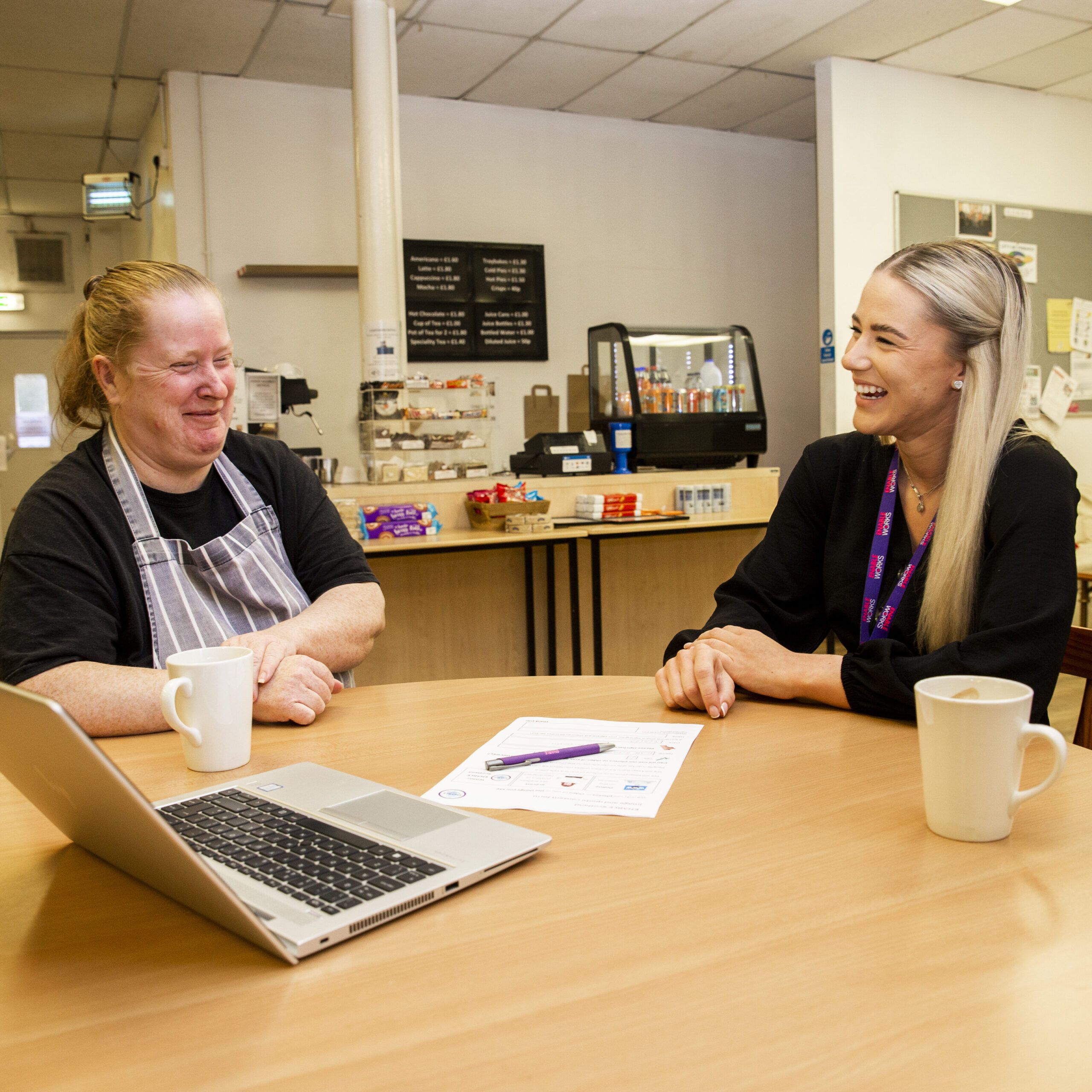
The programme declutters employability services for the people looking to access support by bringing services together to work under one service. This allows service users to access support from several specialist organisations without having to engage with them separately, and promotes the ‘tell your story once’ approach.
The All In Dundee service provides support to individuals aged 16 – 67, who have a range of complex barriers to employment, including those who are care experienced, have health conditions and/or disabilities, convictions, and substance misuse issues. The service supports more than 1000 participants each year, using a community based approach to ensure that the team reach as many people as possible.
The provision offered varies, blending outreach and centred support with programme structure, offering a range of options that include needs- led 1-2-1 support and sector-based academies in key growth areas for Dundee, as well as access to vocational training and qualifications. The wide range of options available to participants mean that the team can remain true to the “no wrong door” ethos and ensure that the right provision is available to meet the identified needs of the people supported.
ABZWorks Employability Support
Aberdeen
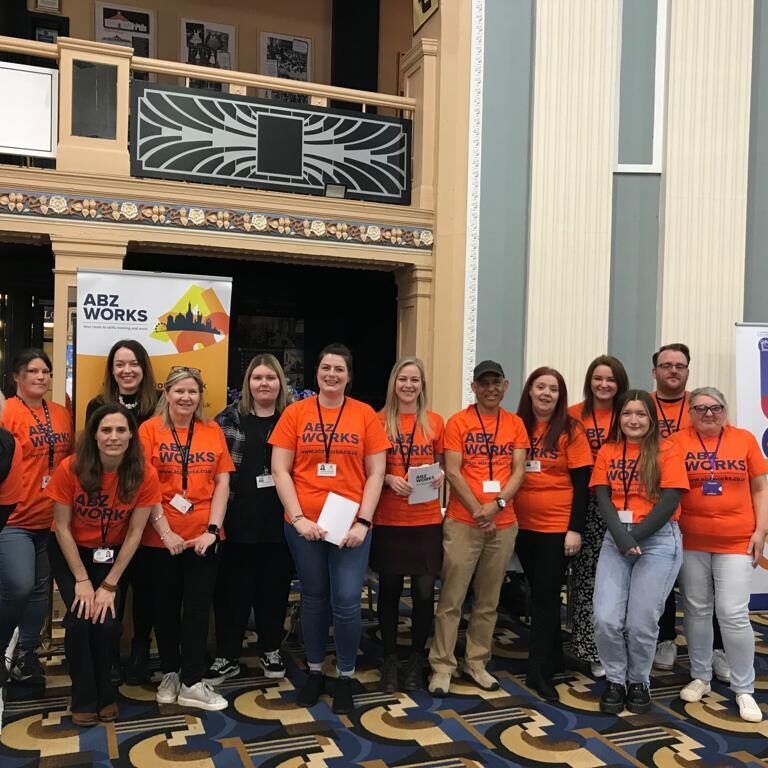
Many care experienced young people face considerable barriers to employment and the majority will need additional support and mentoring to help them achieve and sustain employment. Events in their past prevent them from accessing certain jobs or put them at a disadvantage.
Aberdeen City Council’s Employability Team decided to focus on this group of young people in the city to ensure there was employability support to addresses the specific barriers to employment they face. Various interventions and specific training courses have been developed, including an employability pilot project designed by care experienced young people (CEYP) for CEYP, a work experience internship for CEYP with placements at Aberdeen City Council, intensive employability support for CEYP delivered through a third sector partner, and a guaranteed interview scheme at the council for CEYP meeting minimum job specification criteria.
ABZWorks uses a person-centred approach and actively encourages user voice. The CEYP Pilot consisted of a 9-week programme of ‘traditional’ employability support, such as CV development, interview skills and mock interviews, alongside other elements including first aid training, work experience, and an on-site introduction to various jobs at a local health centre. Young people were consulted throughout the project and it was adapted accordingly.
The CEYP internship programme is delivered in-house, meaning the team can wrap support around every participant, including from their line manager, HR, employability keyworkers, and social workers. Additional support, including funding for work clothes and lunches, was also given to each young person. They were paid the Real Living Wage and placements were designed with incrementally increasing hours, from 16 hours per week initially to 30 hours per week by week 12, but this was flexible based on individual needs. Everyone supported by ABZWorks has an employability keyworker to help them progress at their own pace, recognising an individual’s barriers and experiences, and working together to overcome them.
Wild Skies Shetland
Unst
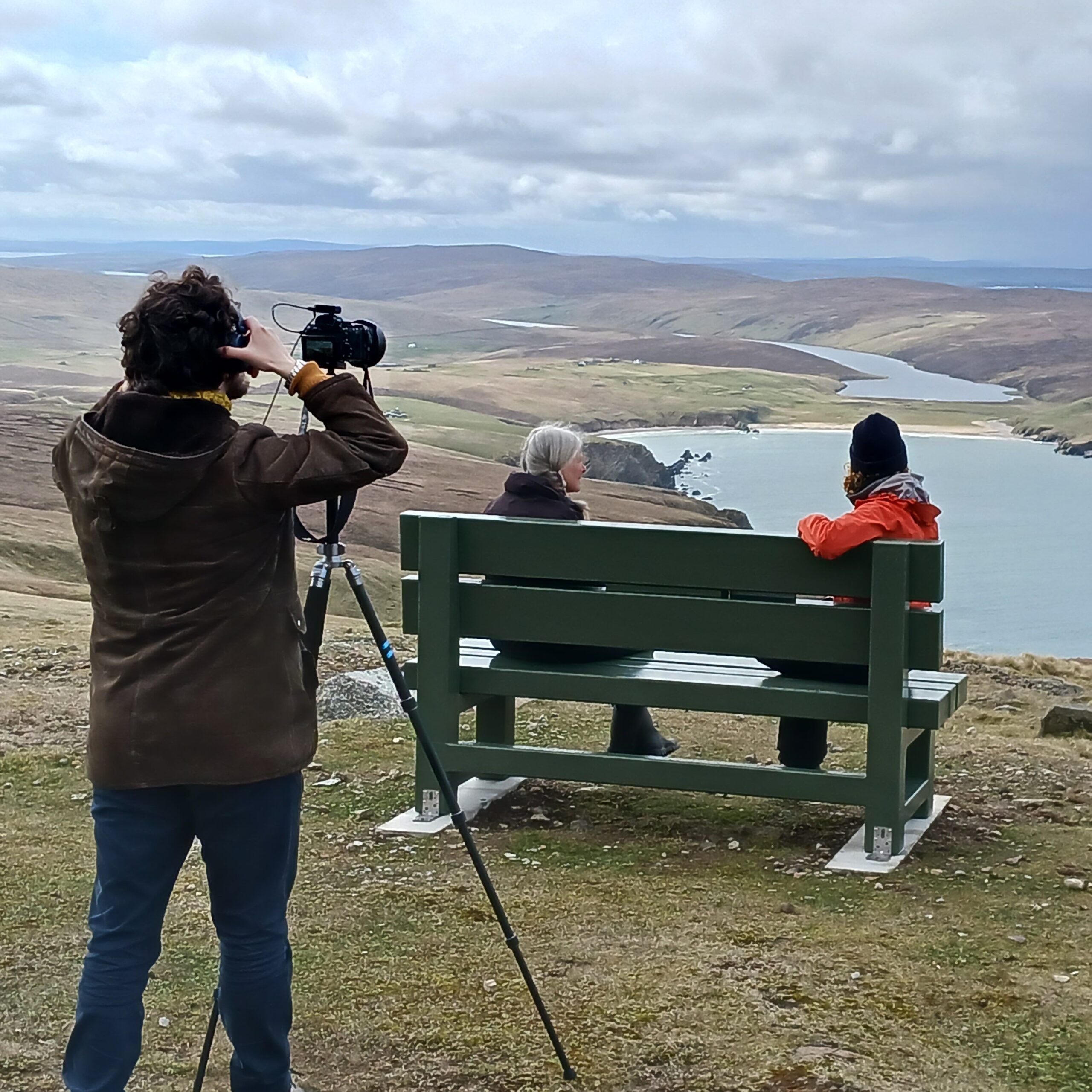
Unst is one of the poorer Shetland islands. Its population dropped by 30% in the 2000s when the RAF withdrew. The lack of access to services and arts venues, coupled with the fragile local economy, means that it is important to have exciting, artistic projects on the island that local people can access, and local artists are keen on opportunities to showcase their work on the island.
Wild Skies Shetland (WSS) work with island folk to develop interesting, low-cost or free things for local people to do. This might be walking the Planetary Trail, with its amazing views and work by local artists; making and setting up solargraphic cameras with a professional artist; working on a film together; or gathering to play local tunes for the Sky Trail’s “musical benches”. Unst has strong cultural and artistic heritage, and Wild Skies’ activities provide an outlet for these. The Sky Trail has 13 sky-related stops. Through notice boards; QR codes; web-pages with text, illustrations and sound; and talking benches WSS showcase Unst’s artistic and cultural life.
WSS activities also benefit visitors. Unst struggles with not being able to retain tourists for more than a few hours, and who spend little or no money when there. The Sky Trail, in particular, encourages people to stay for longer, providing economic benefits for the island.
WSS is proud of its contribution to the local economy and community cohesion. The project has provided employment by recruiting a part-time Social Media Communicator, and created local contract opportunities, for example to build the Sky Trail. The community hostel had a valuable block booking for a school trip, which walked the Planetary Trail. The local Brownies did a star-gazing badge for the first time, inspired by Wild Skies’ creations, and a local musician held a concert in an atmospheric new venue, having seen the Sky Trail Stop there.
Deaf Action: Inclusion & accessibility to the arts
Edinburgh
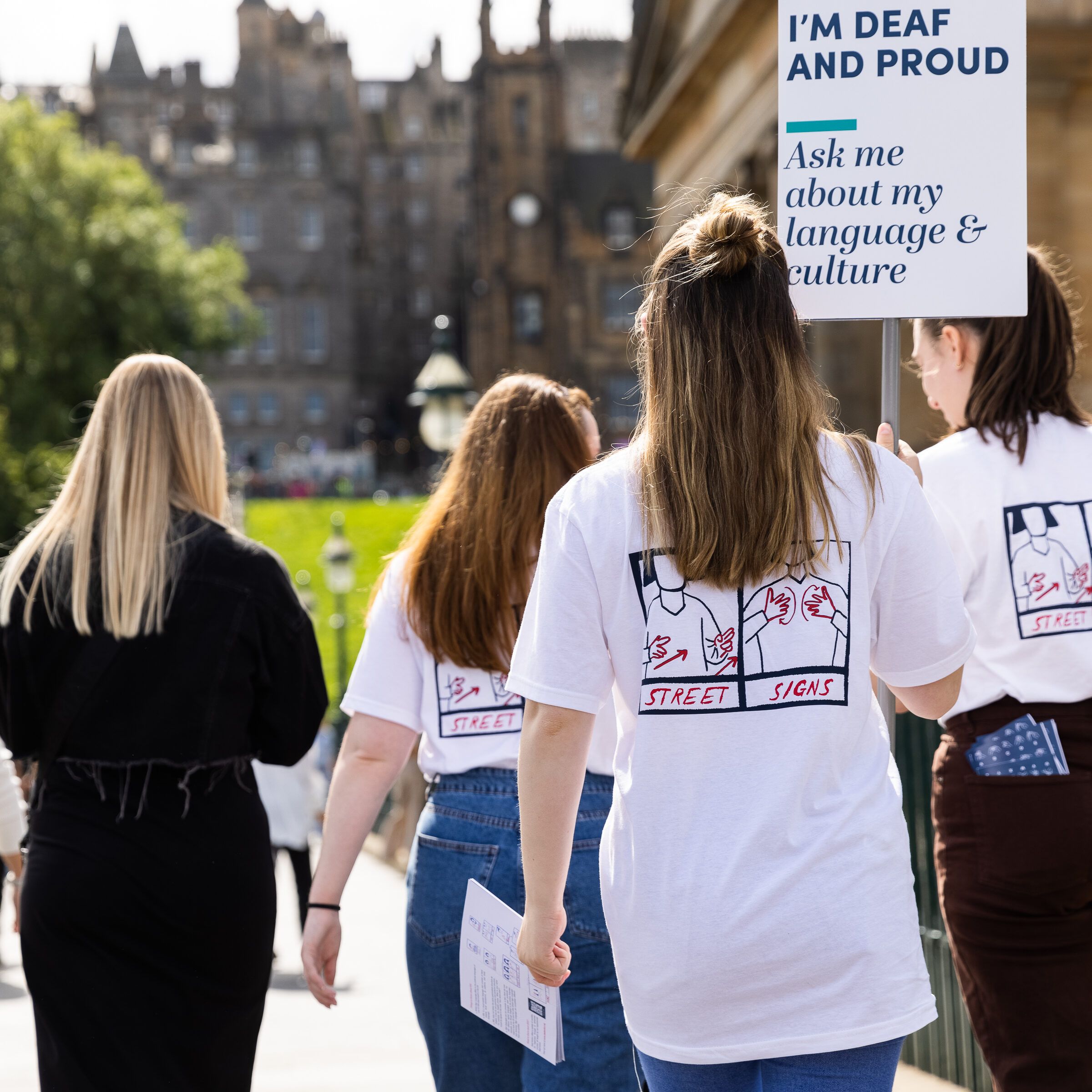
In pursuit of a commitment to celebrate deaf culture and support improved access to the arts, Deaf Action launched the first Edinburgh Deaf Festival in August 2022, a fully accessible celebration of deaf culture, reaching over 2000 new people.
Comprising a diverse programme, the Festival has facilitated opportunities to showcase deaf creative talent; raise awareness of the creativity inherent in sign language use; and promote inclusive communication strategies. The Festival removes barriers that deaf people usually experience when trying to engage with arts and culture. Simultaneously, non-deaf audience members are transported to a deaf world for an immersive experience.
Together with the local community, Deaf Action have delivered a range of creative activities, making up a year-round programme of work that underpins the Festival. For example: a ceramic tile painting workshop run by a local deaf artist; a programme using Visual Vernacular, a unique form of theatrical performance art comprising poetry formed of expressive movement and mime; visual arts workshops; and a Deaf Rave.
The inaugural Festival was a key launchpad for what is expected to become a permanent programme, with outcomes which have an enduring impact for the deaf community.
The Beacon Arts Centre, Creative Minds
Greenock, Inverclyde
In May 2023, the Beacon Arts Centre hosted a two day Creative Minds: Community Arts Festival. The Greenock venue became an open space, with community groups taking over to showcase their creativity with workshops, talks, events, demonstrations, exhibitions and more, all free and open to the public.
The festival was the culmination of a five-month project which began with a community consultation. The Beacon’s community engagement team reached out to various third sector groups, through conversations and consultations, and collaboratively devised ways in which they could express themselves creatively, and amplify their voice. Participants were then carefully matched with an artist who would work alongside them, either in their location or in The Beacon.
As a result, The Beacon is increasingly being seen as a creative resource within the community of Inverclyde. All the groups who participated have expressed a desire to continue partnership working with The Beacon. An example of the positive ‘ripple effect’ of Creative Minds happened as a direct result of community groups seeing the creative works of other organisations and feeling inspired and empowered to explore their own lived experience through creativity.
Gairloch and Loch Ewe Action Forum (GALE)
Wester Ross
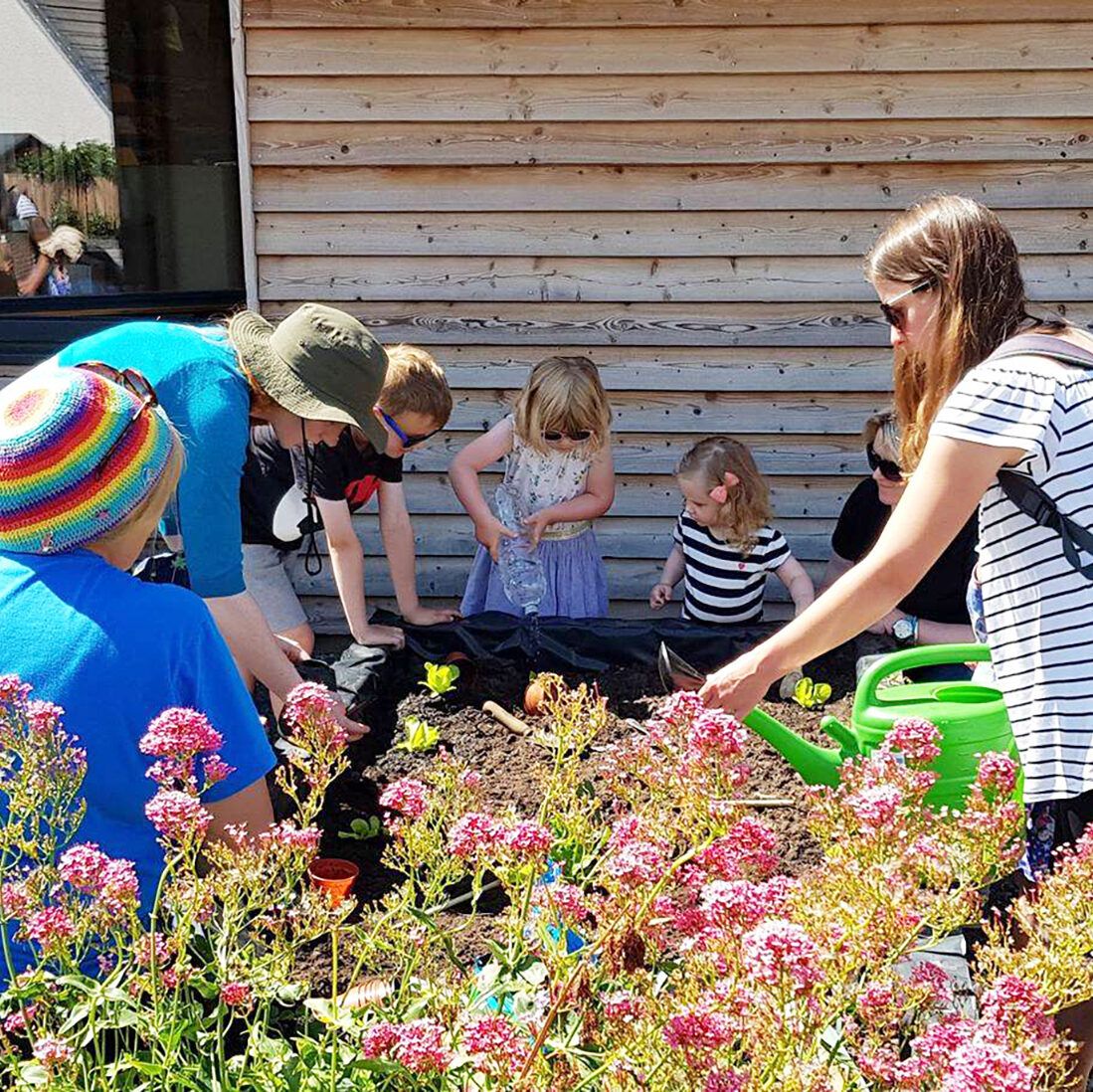
Gairloch and Loch Ewe Action Forum (GALE) empower local people to collectively own and control local assets and services, and take an active role in local decisions that affect them. GALE are working to strengthen the fragile local economy by reducing seasonality, maximising the local benefits of tourism, creating employment and income generating opportunities, and increasing the availability and variety of year-round services available to local people.
The purpose-built community hub, The GALE Centre, consists of an independent tourist information centre, a community café supporting 20 local bakers and a retail space showcasing, promoting and selling work from over 50 local art and craft producers. The Centre is open 364 days a year, which is particularly important to the community during the winter months, when the majority of local hospitality venues close.
Between January and March 2023, GALE provided a Warm Bank and ‘pay what you can’ café to support local people during the cost of living crisis. In that time, the project provided 177 meals to local people. The Forum creates opportunities for people of all abilities to engage in community activities, combating loneliness and isolation, improving skills and employability and increasing social cohesion and local democracy.
Govan HELP – The Govan Pantry
Glasgow
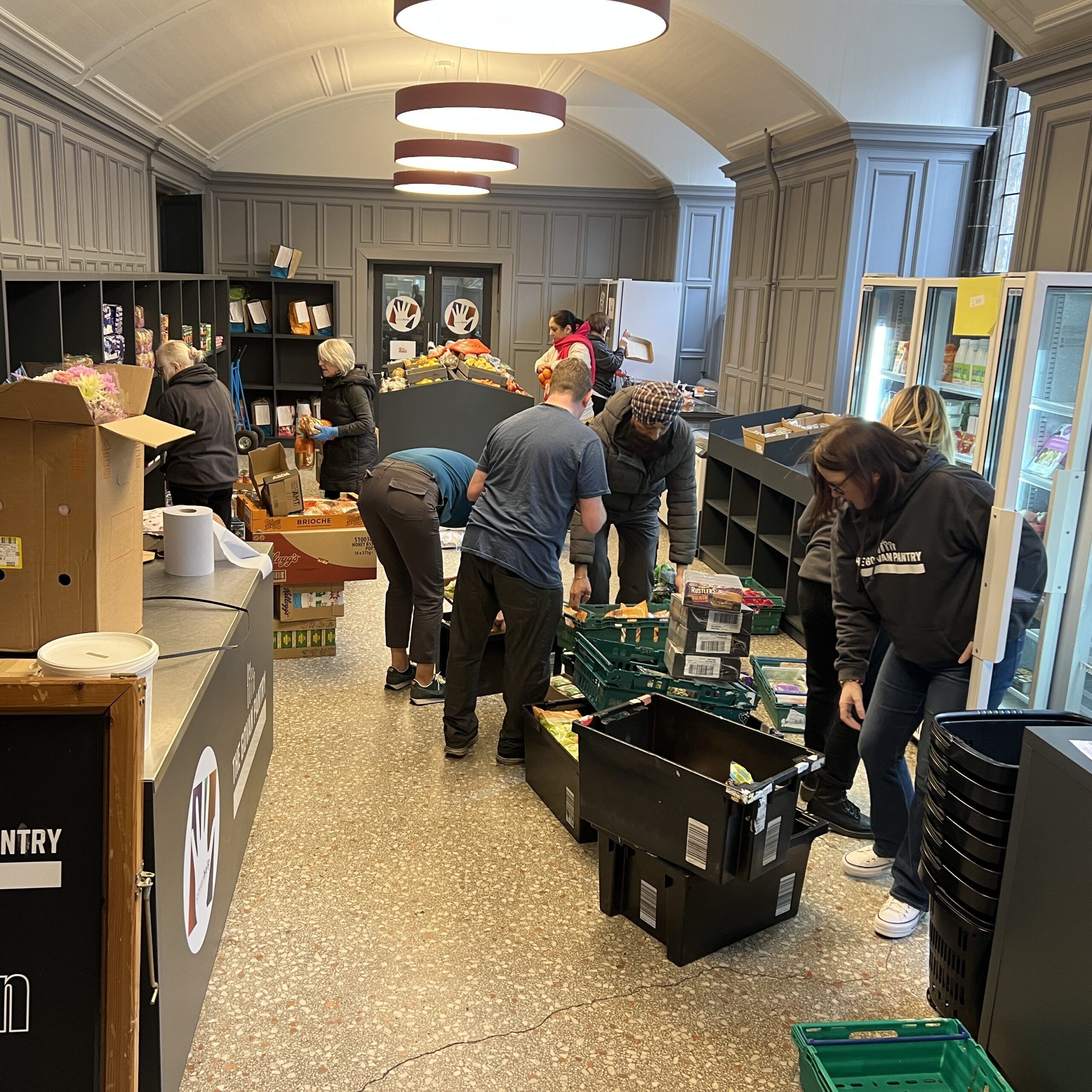
The Govan Pantry is the Govan Home and Education Link Project’s (Govan HELP) most recent development and started initially as a foodbank in response to the pandemic. The pantry is a community subsidised shop, that offers members from the local community the chance to purchase up to ten items of food and hygiene products for a weekly membership fee of £3.
The project aims to support people, helping to make limited budgets go further, and to alleviate the impact of being unable to afford basic essential items. Since launching the project, 2834 members have registered to use the pantry from the G51 area of the city. This represents more than 10% of the population of Govan, and is indicative of the scale of food poverty within this community. The integration of this service within Govan HELP’s wider range of family support services has been critical in ensuring that the project reaches those in the community who are most in need.
Govan HELP have also developed the project to have a training and volunteering focus, and to provide access to opportunities for local parents who would like to learn new skills and gain experience. The internal Pantry Training Programme was designed to provide an overview of the pantry operations, alongside providing skills in customer service, values and attitudes, and confidentiality. This service is now delivered three times per year, supporting 24 parents to access training and volunteering. In addition, the team have been able to provide access to a range of external accredited qualifications, with 30 volunteers having completed the training to date, gaining valuable and transferable qualifications to support their own employability journey.
The Govan Pantry has become a vehicle to bring people from the local community together, helping to reduce social isolation and loneliness, and as a result has become a real hub within the community.
Kerrera North-South Road Project
Isle of Kerrera
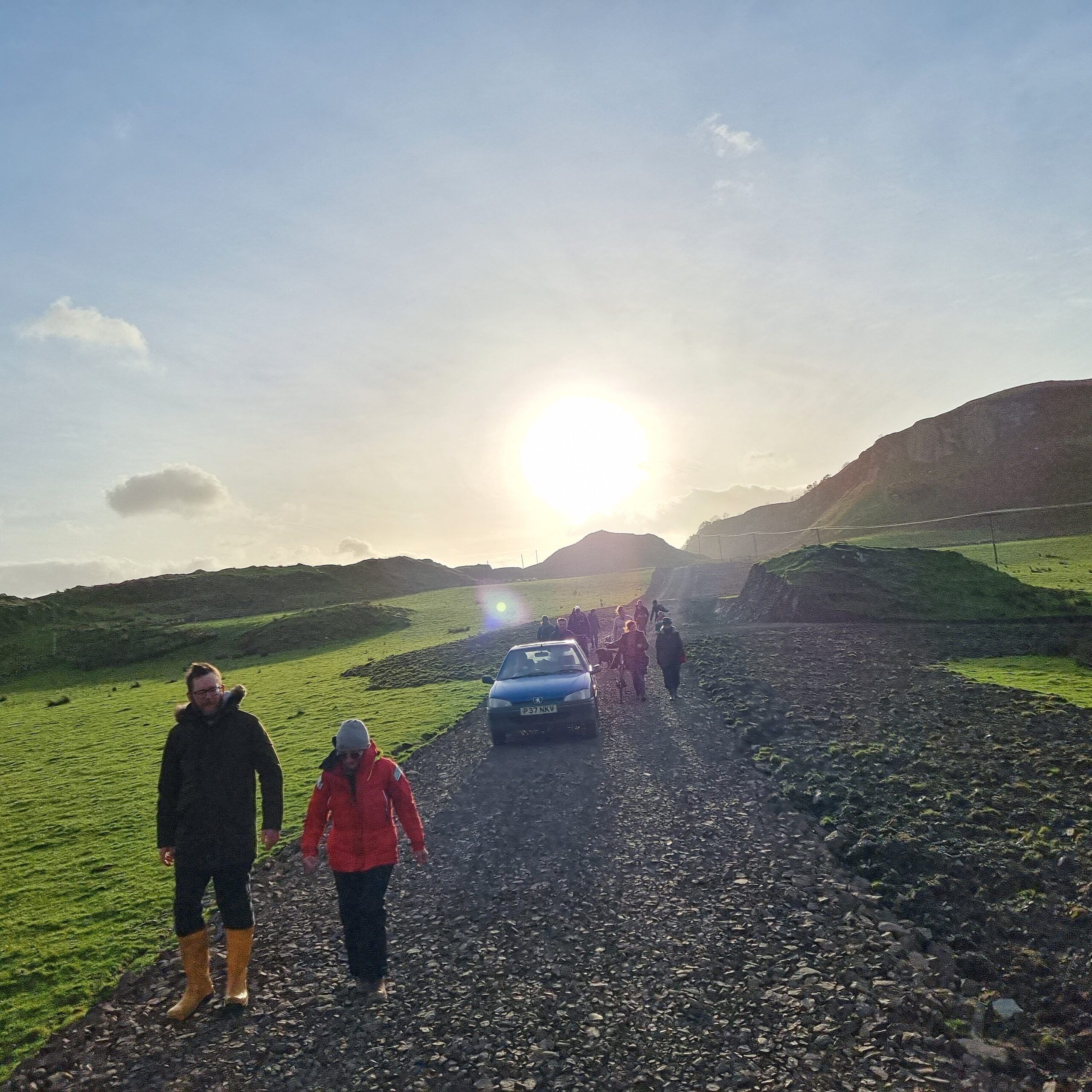
Until the successful delivery of the North South Road project, Kerrera was an island of two halves. With
no connecting road between the north and south, the communities had to split their assets and population.
Despite its proximity to the mainland, Kerrera is in the 1% most deprived areas (SIMD) in terms of access to services in Scotland. There are no public facilities on the island beyond the Council’s refuse collection service and the Calmac ferries. It was clear for long-term economic viability, island resilience and community cohesion, a connecting road was needed.
After many years of persistence and many volunteer hours, the Isle of Kerrera Development Trust (IKDT) successfully delivered the project. Resulting in the whole community having unfettered access to the main lifeline ferry service. For southern residents, the road allows access to excellent marina facilities and the option of keeping their own boat in the water, important as the ferry stops at 6pm. Island resilience has improved, with access for all residents in the case of an emergency. The Marina is now the main employer on the island with over eight jobs taken by local residents, who can now safely cycle, walk or drive to work.
Vibrant Gala Project
Galashiels, Scottish Borders
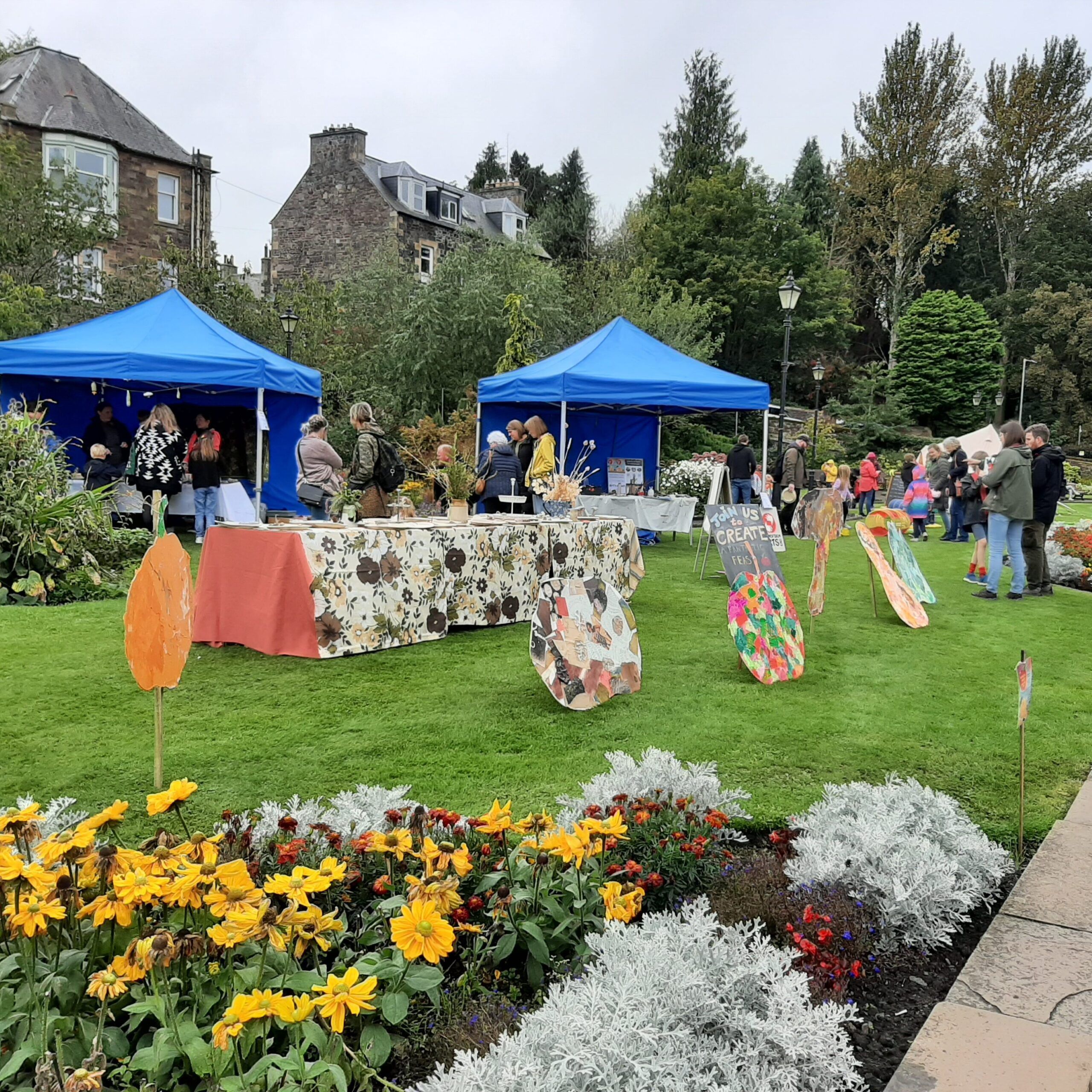
Galashiels, the second largest town in the Scottish Borders, has a population of around 12,600. As a former textiles town, levels of affluence and employment fluctuate, with one area, Langlee, currently classed as one of the most deprived, based on SIMD 2020. In 2014, the town centre was particularly challenged with the number of vacant units at a record high of 18%, declining footfall year on year and in many parts, visually unattractive.
Energise Galashiels Trust (EGT), a community-based organisation, was established in that year to respond to the continuing decline in the town centre with the aim of creating a more vibrant and welcoming community. EGT has progressed ten years of partnership activity, focusing for the last three years on the Vibrant Gala Project, with support from South of Scotland Enterprise and Scottish Borders Council.
The key aims of the project are to improve the economic performance of the town centre and enhance community activity and wellbeing. To achieve these aims, EGT has focused on: developing community led projects & events in the town centre; marketing Galashiels and providing digital support to enterprises; progressing the Tapestry Way Feasibility Study and development activity; and contributing to a Futures Forum.
EGT has led the development of the popular “Galashiels Heartlands of the Borders” brand, website, and social media platforms to promote Galashiels to locals and visitors. With 125 local enterprises now listed, the website currently attracts around 1500 visitors each month. The group have supported 12 community events over the last 3-4 years, appealing to diverse interests within the community from sport, leisure, heritage, arts and education. For example, EGT launched a Cycling Without Age Trishaw Chapter, reducing social isolation and improving wellbeing.
EGT have also supported the improvement of 35 town centre properties with funding of £119,000, with priority given to long-term vacant premises, large vacant units or those negatively impacting the town centre. This has encouraged new-starts and expanding businesses, creating a more attractive and vibrant town centre with new and additional retail and service offers, as well as local employment.
Rockfield Community Hub
Oban
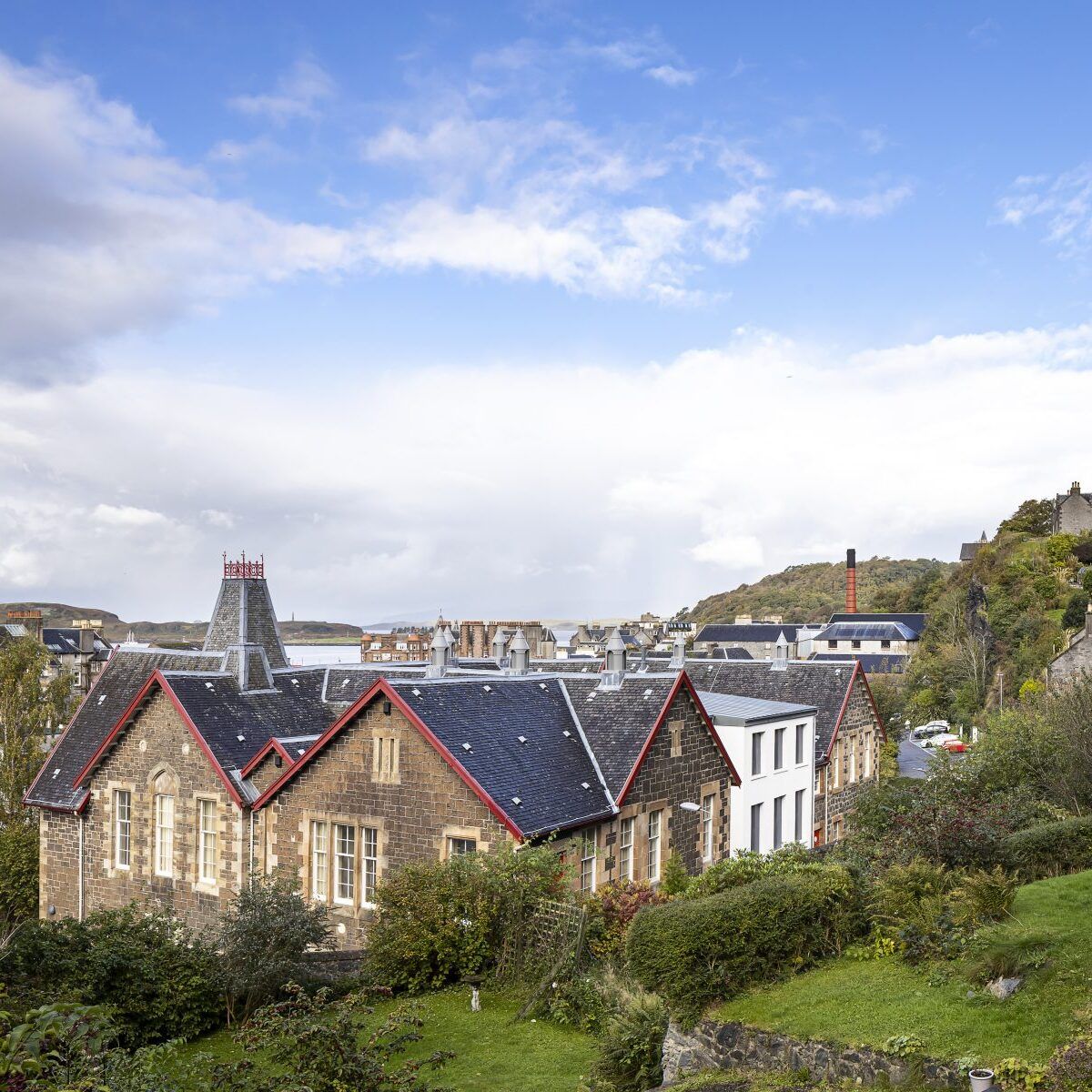
The Rockfield Centre, located in the heart of Oban, is a vibrant community hub and cultural catalyst. Housed within the beautifully renovated former Rockfield Primary School building, the project encompasses a diverse array of initiatives that breathe life into the town.
The new cultural hub has transformed the town’s physical landscape. The main building now boasts two large halls, an art studio, an art exhibition gallery, and multiple meeting rooms. These spaces have become valuable assets that facilitate a wide range of community events.
This transformation has revitalised the town’s public spaces, providing accessible venues for various activities and fostering community engagement.
The hub features The Rowan Room Café, a culinary haven that celebrates the essence of Argyll through locally sourced delights, fostering community connections through food and flavours, and the Kids Space, aptly named Àite na Cloinne, offers an interactive area for children and families to explore Oban’s heritage through play and discovery, engaging young minds in the cultural history of Oban.
The Heritage and Community Offerings programme, including exhibitions, heritage blethers, workshops, and more, actively engages the community in preserving and celebrating Oban’s rich history. Beyond these spaces, The Rockfield Centre is a dynamic platform for arts, culture, wellbeing, and enterprise, offering a wide range of activities and opportunities. Collaborations with third sector organisations and local bodies extend the centre’s outreach, enabling staff to enhance community engagement.
As a cornerstone of the Oban community, the project fosters cultural appreciation, economic resilience, and social cohesion, making Oban a more vibrant and connected place for all.
Shapinsay
Orkney
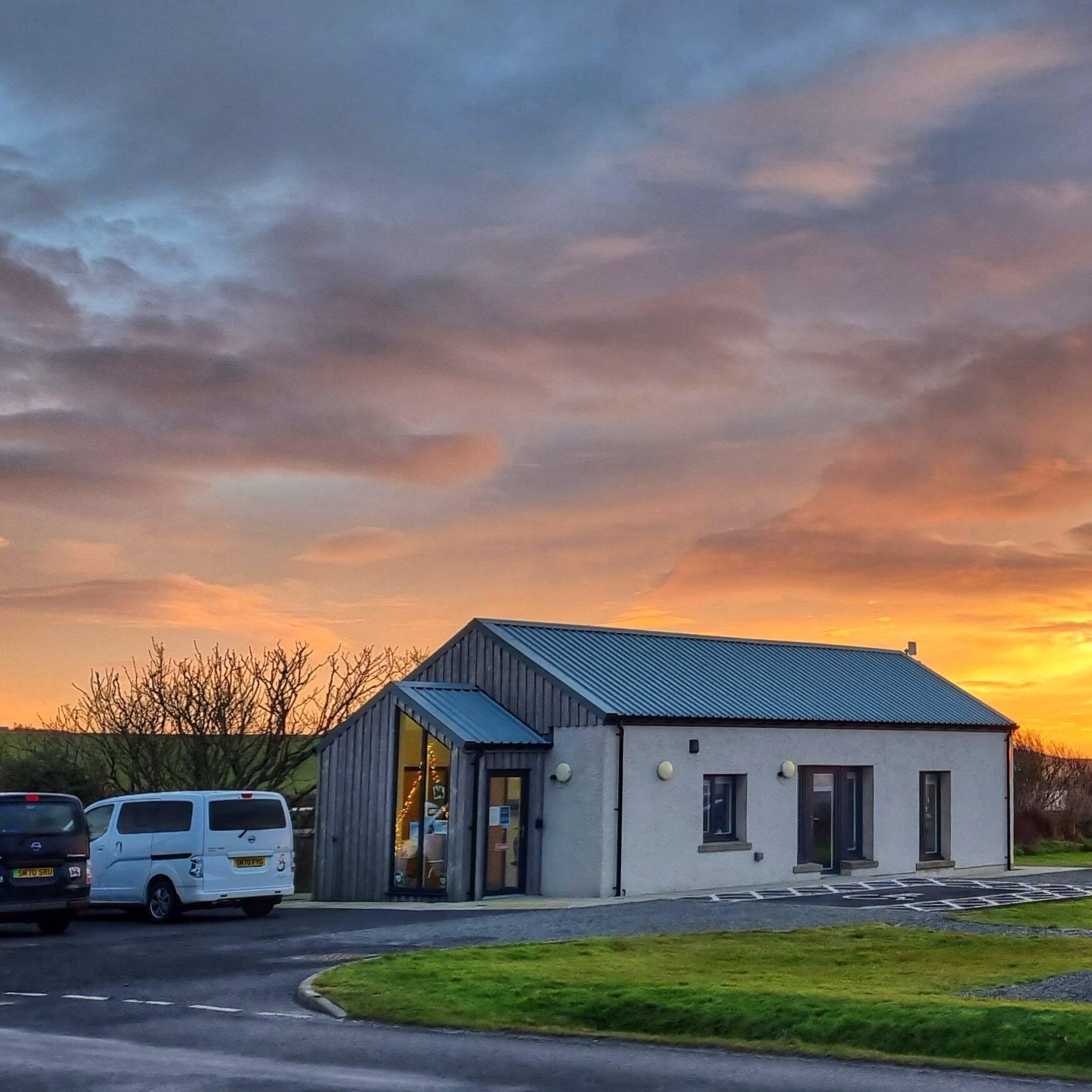
Shapinsay is one of the inner North Isles of Orkney. It is seven miles long and three miles wide, and a 25-minute ferry ride from the mainland. The local community faces challenges, including depopulation, an ageing population, insufficient affordable housing and community facilities, lack of employment opportunities, and high levels of fuel poverty. An island that once boasted a population of 974 is now home to just 330 passionate residents.
Shapinsay Development Trust (SDT) was set up to tackle these issues and improve outcomes for the people of Shapinsay. In 2011, a 900kw community turbine, owned by the Trust, was commissioned to create renewable energy and revenue to
benefit the island. This pioneering project was a game-changer for the
community.
In 2020, a 5-year development plan was produced. The plan was shaped and owned by the community, which gave a clear mandate to the Trust to deliver. The Trust had plans to purchase and open the only community cafe on the island but knew it would take 18 months to complete. Instead, they used COVID funding to open a community charity shop and pop-up community cafe to ensure the needs of the community were being met. This not only created jobs, but also a surplus, which was distributed to community groups on the island.
SDT has attracted over £1.5m of external funding in the last six years. A high proportion of the funding has been used to secure and create much needed community spaces. The Trust has secured a large plot of land on the outskirts of the village which will involve an enterprise zone, community housing, community tourism, a community garden and growing space, a wellbeing walk, and self-build plots for the youth on the island.